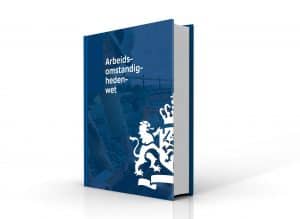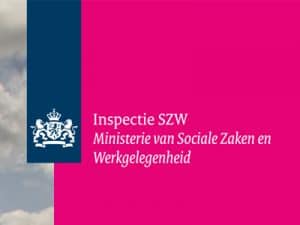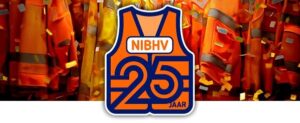ER Mandatory? Legislation and regulations
Not all organisations and companies in the Netherlands are well-informed about the legislation and regulations relating to ER or emergency response. The question “Is ER mandatory?” is therefore an important one. The fact that this is a frequently asked question demonstrates how unfamiliar employers and organisations are with this subject.
NIBHV provides an overview of the ER requirements as provided for in the legislation and regulations.
-
Are emergency response (ER) provisions mandatory?
- Yes, ER provisions are required by law for all companies with employees (starting at one employee). All employers have a general duty of care in the sense that they must ensure the safety and health of their employees. The number of employees that you must train as emergency response officers depends on the risks inherent in your organisation. This is determined on the basis of a Risk Inventory & Evaluation (RI&E). In small organisations, it is permitted for an employer to be the emergency response officer. If you have any queries about your organisation’s obligations, please contact NIBHV or your ER trainer.
The Working Conditions Act (Arbowet) and emergency response
The occupational health and safety legislation in the Netherlands (also known as the Working Conditions Act (Arbowet)) is the system of legislation and regulations that stipulates that employees must be able to work in a safe, healthy manner. This legislation specifies the requirements that organisations and employers must meet in order to ensure the safety of their staff in the workplace.
The employer ensures the safety and health of employees with respect to all work-related aspects, and to that end pursues a policy aimed at achieving the best possible working conditions while taking into account the state of the art and professional provision of services, and the following regulations:

- According to Section 3 of the Working Conditions Act, the employer must formulate a policy aimed at achieving the best possible working conditions. More information on this can be found in Section 3, paragraph 1 e (in Dutch).
- According to Section 15 of the Working Conditions Act, the employer may be supported by competent emergency response officers. This section also describes the tasks of the EROs and the obligation to train EROs in the organisation. See also section 15 (in Dutch).
-
How many EROs does my organisation need?
- The number of EROs depends on the risks involved, the size of the company and the nature of the activities it carries out. There must be at least one employee who can perform the emergency response tasks. The number of EROs required is based on the various incidents that may occur at the company and whether an incident can be effectively dealt with or minimised.
Training and equipment
An organisation’s emergency response officers must meet a number of conditions. In terms of number, training and organisation, they must be facilitated and equipped to enable them to effectively carry out the emergency response duties (Section 15, paragraph 3 Working Conditions Act). Skill levels must also be maintained after the initial training course with EROs being required to undertake further training and refresher courses on a regular basis. Accordingly, the Ministry of Social Affairs and Employment lists the following important points.
Important points for good emergency response services:
- Have EROs take a refresher course approximately once a year.
- Ensure that emergency response officers are distributed as evenly as possible across all of the company’s locations/departments, as being on site and able to act quickly is very important in an emergency.
- It is wise to appoint employees who have an internal role (office staff) as EROs.
- Do not oblige employees to become emergency response officers; it’s generally best to have employees who have volunteered for this role.
- The company can reward emergency response officers for their extra duties with an annual allowance as a form of motivation.
-
Is ER mandatory for the self-employed and freelancers?
- The answer is both yes and no. The Working Conditions Act refers specifically to employees, and the obligations for the employer. If you have a sole proprietorship, then you are not obliged to meet emergency response requirements. However, the self-employed are responsible for their own safety.
Please note, this means that you may not allow interns, holiday workers or other visitors to work with you at your company’s premises. If you do, then the Duty of care for non-employees may apply. If people spend time on your premises for business reasons, the obligation may therefore also apply. Even if you have no staff/employees, you might still be working with others in a shared location. Furthermore, your company may well expand in the future; holding an ER certificate is good preparation for this possibility.
Who monitors compliance with the emergency response obligation?
The Inspectorate SZW has the statutory task of inspecting whether an employer complies with the ER obligations, on the basis of the Working Conditions Act.
If a disaster or industrial accident occurs and casualties are involved, then the Inspectorate SZW and the insurance company can conduct an investigation. The lack of an adequate emergency response team may influence things like the liability and the amount of any compensation from the insurer.
A well-trained and experienced ER team is important to ensure business continuity. The emergency response can prevent and minimise injury to casualties as well as damage to buildings and property.
What emergency response arrangements should you make?
To ensure a properly organised emergency response, you will need to appoint sufficient EROs and have them take an effective ER training course, enabling them to perform the emergency response duties in your company or organisation. You must also provide ER resources such as a first aid kit, communication devices and an ER safety vest that makes your emergency response officers easily recognisable
Arranging your emergency response starts with training and facilitating your ER team and people. If you would like to know more about this, please also read “How to choose a good ER training course” (in Dutch).
What can NIBHV do for my emergency response provisions?
There are no legal standards ensuring the quality of ER training courses; the Working Conditions Act and the Building Code only provide frameworks for this. As the leading knowledge institute for emergency response matters, NIBHV has established its own quality standards for ER training courses based on these legal frameworks, the NIBHV Quality Mark.
The core activity of the NIBHV consists of converting knowledge into up-to-date safety courses. It does this by developing knowledge documents and learning materials for course participants, and instructional materials for trainers and instructors who comply with the latest legislation and regulations. NIBHV draws up exams and ensures independent quality assurance through personal certification. In order to guarantee independence, NIBHV does not provide training itself, but works with trainers and partners to guarantee the quality of emergency response provisions in the Netherlands.
NIBHV Quality Mark: quality assurance and independent certification
The NIBHV independent certification system guarantees the quality of the training courses and the trainer. The trainer notifies the NIBHV of the training course before commencement. NIBHV then carries out checks on these training courses. Are NIBHV-certified instructors providing the training? Is the instructor following the prescribed lesson plan? Does the training comply with Section 15 of the Working Conditions Act? Are the activities being carried out safely? Is the learning environment safe for course participants? These and other matters will all be tested.
A select group of trainers receives the NIBHV Quality Mark. This enables NIBHV to guarantee to employers and course participants that the trainer chosen for the organisation’s safety courses meets the requirements set by the NIBHV and complies with the existing legislation and regulations.


